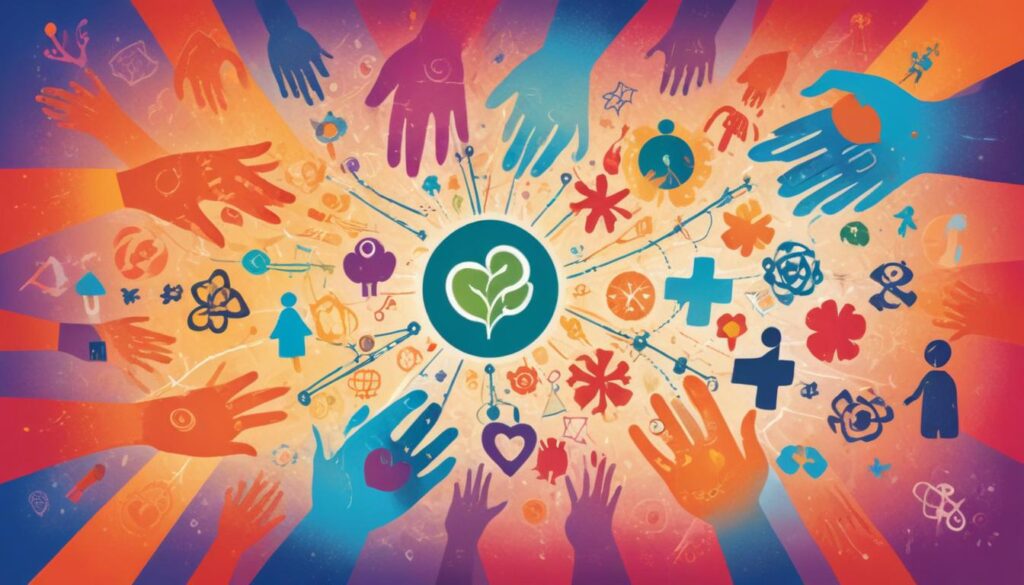Sustainability encompasses practices that promote environmental health, social equity, and economic viability, aiming to reduce negative impacts on the planet while fostering long-term well-being and resilience in communities.
Sustainability is more than a buzzword; it’s a vital practice for our planet’s health. Have you ever wondered how these innovative methods reshape our world? Let’s dive into the future of sustainable practices!
Understanding sustainability
Understanding sustainability requires a holistic approach to the ways we interact with our environment. It involves not only the preservation of natural resources but also the promotion of social equity and economic viability. By embracing sustainable practices, we can significantly reduce our ecological footprint and enhance the quality of life for all.
One key aspect of sustainability is the efficient use of resources. This means minimizing waste and making concerted efforts to recycle and repurpose materials. Implementing renewable energy sources like solar and wind power drastically reduces reliance on fossil fuels, which are a primary contributor to environmental degradation.
Another critical element is the promotion of sustainable agriculture. By using techniques that protect the soil and water systems, farmers can produce food in ways that are both environmentally friendly and economically profitable. This not only supports local economies but also ensures food security for future generations.
Lastly, education plays a vital role in driving sustainability forward. By raising awareness and encouraging community involvement, we can foster a culture of responsibility towards our planet. Individuals can make small changes in their daily lives that collectively contribute to a more sustainable future.
The impact of sustainable practices
The impact of sustainable practices extends far beyond environmental benefits, influencing social and economic aspects as well. When businesses adopt environmentally friendly methods, they not only minimize harm to our planet but also often enhance their profitability over time.
For instance, companies that implement energy-efficient technologies can significantly reduce their operational costs. This transition leads to lower energy bills and decreases reliance on non-renewable resources. Such savings can be redirected towards innovation and sustainable growth.
Moreover, embracing sustainable practices fosters a positive brand image. Consumers today are increasingly aware of environmental issues and tend to prefer brands that demonstrate social responsibility. This shift drives businesses to maintain high standards, directly impacting their customer loyalty.
In addition, sustainable practices contribute to job creation and community wellbeing. By investing in green technologies and sustainable agriculture, businesses help develop local economies and create new job opportunities. This holistic approach promotes not just ecological sustainability but also social equity, leading to healthier communities and a more robust economy.
Innovative approaches to ESG
Innovative approaches to ESG (Environmental, Social, and Governance) are transforming how companies operate and engage with stakeholders. With growing awareness of corporate responsibility, businesses are integrating sustainability deeply into their core strategies.
One effective method is the use of data analytics to track and measure ESG performance. By leveraging big data, companies can gain insights into their environmental impact, social contributions, and governance practices. This information allows firms to identify areas for improvement and align their operations with broader sustainability goals.
Additionally, fostering stakeholder engagement is crucial. Companies are adopting collaborative platforms to involve employees, customers, and community members in ESG initiatives. This transparency builds trust and encourages collective action towards shared sustainability objectives.
Furthermore, innovative financing solutions, such as sustainability-linked bonds, incentivize companies to enhance their ESG performance. These financial instruments tie interest rates to specific sustainability targets, motivating businesses to achieve measurable environmental and social outcomes.
By embracing these innovative approaches to ESG, organizations not only fulfill their ethical obligations but also unlock new opportunities for growth and resilience in an increasingly competitive market.
The role of technology in sustainability
The role of technology in sustainability is pivotal as it drives innovation and efficiency across various sectors. Advancements in technology enable organizations to minimize their environmental impact while promoting sustainable practices.
One significant innovation is the development of smart grids that optimize energy distribution and consumption. These grids utilize real-time data to improve electricity efficiency, reduce losses, and integrate renewable energy sources, thereby supporting a cleaner energy transition.
Furthermore, technologies such as IoT (Internet of Things) facilitate better resource management. By connecting sensors to monitor air quality, water use, and waste levels, businesses can make informed decisions that lead to significant reductions in waste and resource consumption.
In agriculture, precision farming technology enhances crop yields while minimizing the use of water, fertilizers, and pesticides. This approach not only boosts productivity but also preserves vital ecosystems and maintains soil health.
Finally, blockchain technology is emerging as a powerful tool for ensuring transparency and traceability in supply chains. This ensures that sustainable practices are adhered to, reassuring consumers about the origins and impacts of their products.
Challenges in implementing sustainability strategies
Implementing sustainability strategies presents several challenges that organizations must navigate to achieve their goals. A primary obstacle is the initial investment cost. Transitioning to sustainable practices often requires significant capital for new technologies, training, and processes, which can deter companies from making necessary changes.
Additionally, there is a lack of standardization in sustainability metrics. Without universally accepted criteria, it becomes difficult for organizations to measure their progress and communicate their achievements effectively. This absence of clarity can lead to confusion among stakeholders and consumers.
Moreover, organizational culture plays a crucial role in the successful implementation of sustainability initiatives. Resistance to change within an organization can undermine efforts to integrate sustainable practices. To overcome this, companies must foster a mindset that prioritizes sustainability across all levels.
Another challenge is the complexity of supply chains. Many businesses rely on a network of suppliers, and ensuring that all partners align with sustainability goals can be difficult. Companies must actively engage with their suppliers to promote compliance and collaboration.
Finally, regulatory environments vary significantly by region. Navigating these regulations can complicate the implementation of sustainability strategies, especially for businesses operating in multiple jurisdictions.
Future trends in sustainable practices
Future trends in sustainable practices are evolving rapidly as society becomes more aware of environmental issues. One promising trend is the shift towards a circular economy, where resources are reused and recycled instead of disposed of. This model minimizes waste and maximizes resource efficiency, fundamentally changing how companies approach production and consumption.
Another significant trend is the increasing reliance on renewable energy sources. As technology advances, solar, wind, and other renewable technologies are becoming more accessible and cost-effective, enabling businesses and households to reduce their carbon footprints considerably.
Furthermore, technology plays a critical role in shaping sustainable practices. The adoption of smart technologies allows for real-time monitoring and optimization of resource use, significantly improving efficiency in various sectors such as agriculture, manufacturing, and energy management.
Consumer behavior is also shifting towards sustainability. People are increasingly prioritizing eco-friendly products and services, compelling companies to adopt sustainable practices in order to remain competitive. This heightened awareness spurs innovation and growth within the sustainable market.
Lastly, government regulations are likely to tighten, pushing businesses to comply with stricter environmental standards. This will drive organizations to invest in sustainability, ensuring their operations align with future regulatory requirements.
In conclusion, embracing sustainability is essential for our future
Sustainable practices not only benefit the environment but also support economic growth and social equity. By adopting innovative approaches, utilizing technology, and collaborating with stakeholders, businesses can effectively integrate sustainability into their operations.
Though challenges may arise, the long-term advantages of being sustainable outweigh the hurdles. Companies that prioritize sustainability will be better positioned for success in a rapidly changing world.
As we move forward, everyone has a role to play in fostering a sustainable future. By making informed choices and supporting sustainable initiatives, we can create a healthier planet for future generations.
Frequently Asked Questions
What are sustainable practices?
Sustainable practices are methods and strategies that promote environmental health, social equity, and economic viability. These practices aim to minimize negative impacts on the planet and support long-term well-being.
How can technology enhance sustainability?
Technology enhances sustainability by enabling more efficient resource use, improving energy management, and fostering innovations such as smart grids and precision agriculture.
What challenges do businesses face when implementing sustainability strategies?
Businesses face challenges such as high initial costs, lack of standardization in sustainability metrics, resistance to change, and complex supply chains that can complicate their sustainability efforts.
Why is consumer behavior important for sustainability?
Consumer behavior is crucial because as customers increasingly demand sustainable products, companies are motivated to adopt environmentally friendly practices to meet this demand and remain competitive.
How can companies measure their sustainability efforts?
Companies can measure their sustainability efforts by utilizing various key performance indicators (KPIs), tracking specific metrics related to environmental impact, social responsibility, and governance practices.
What does the future of sustainability look like?
The future of sustainability is likely to include a greater focus on circular economies, increased reliance on renewable energy, advancements in technology, and stricter regulatory measures promoting environmental responsibility.


